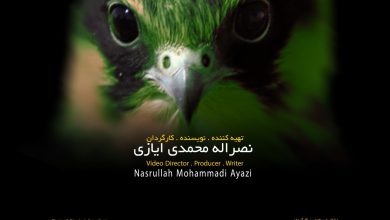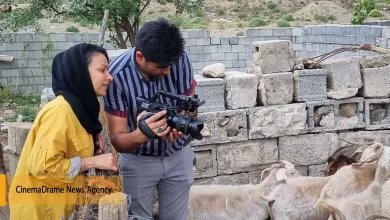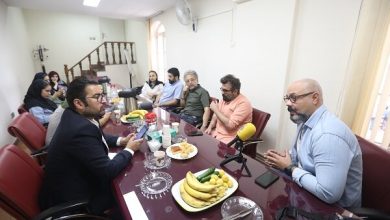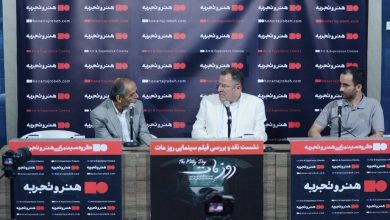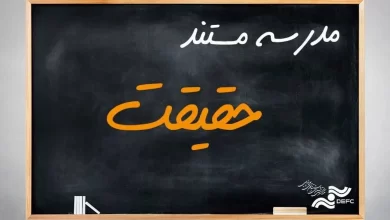Masoud Anami: The Art of Caricature Makes Society More Open to Criticism / Artists in This Field Have Always Been Oppressed
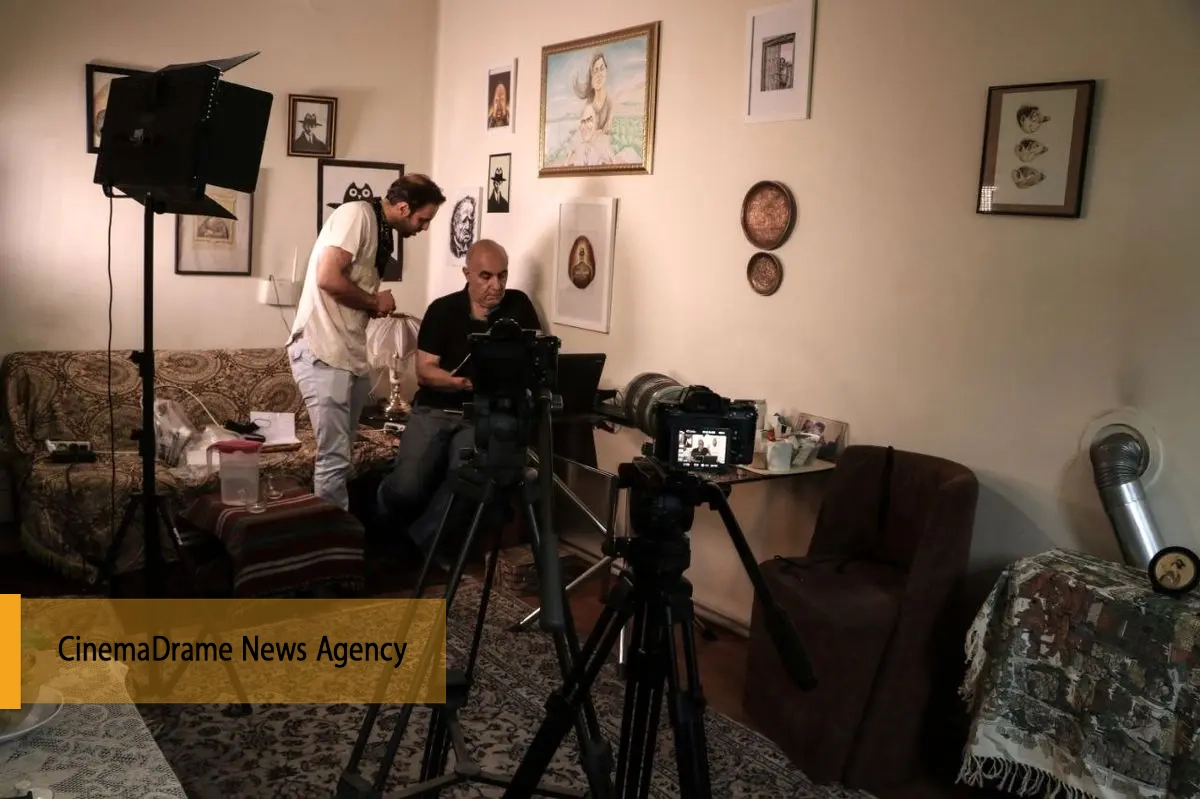
According to cinemadrame news agency, the cinematic documentary “Dauzh Paradiso,” directed by Masoud Anami, has recently been screened in the Art and Experience cinema group across the country. This film focuses on the life of Javad Alizadeh, an Iranian caricaturist and cartoonist, and introduces its audience to the art of caricature.
On the occasion of the screening of this cinematic documentary, we had an interview with its director, the full details of which are as follows:
How did the idea and structure of “Dauzh Paradiso” take shape?
During my teenage years, when I was about 14-15 years old, I became a big fan of Mr. Alizadeh’s magazine. I bought every issue until the final one and followed it diligently. I was always looking for an opportunity to meet him, and fortunately, through my connections with media friends, I managed to get in touch with him. When I called Mr. Alizadeh, I couldn’t believe he would answer. I set up an in-person meeting with him and suggested making a documentary film, which he initially refused.
It was difficult for him to be in front of the camera because he is an introverted person who filled his solitude with paper and pen. During the two years I was in contact with him, a friendship formed between us until I managed to get his consent to make this documentary. Then, filming began, and finally, the film reached a long editing phase.
A lot of energy was spent making this documentary, and perhaps Mr. Alizadeh’s presence in front of the camera was one of the most difficult parts of the film, because as I said, he was not inclined to be in front of the camera. And it was natural that he, with years of experience in art and media, was a well-known personality in this field, and now a young person had come and wanted to make a documentary about him and asked him to be in front of his camera. Gaining his trust was a time-consuming process, and the intimacy that formed helped me. After that, he trusted me and even provided us with the archives we needed, and finally, when he saw the film in theaters, fortunately, he expressed satisfaction.
What features of Javad Alizadeh’s art and personality were attractive to you as a documentary filmmaker?
The first appealing feature that caught my attention was the art of caricature. At that age, 16-17, the drawings and fantastic style of Mr. Alizadeh’s work were appealing to me. As time went on, through Mr. Alizadeh’s works and his magazine, I became familiar with music, cinema, politics, and so on, and I realized that I had developed a humorous view of life, which was also due to the influence of this magazine’s works.
I was away from this magazine for a while and saw that its influence on me was lasting. When I entered the field of filmmaking, my biggest wish was to be able to pay tribute to Javad Alizadeh by making a film about him. Mr. Alizadeh, who is not one for propaganda, emphasized the quality of the work, and fortunately, the film that was made managed to gain his approval.
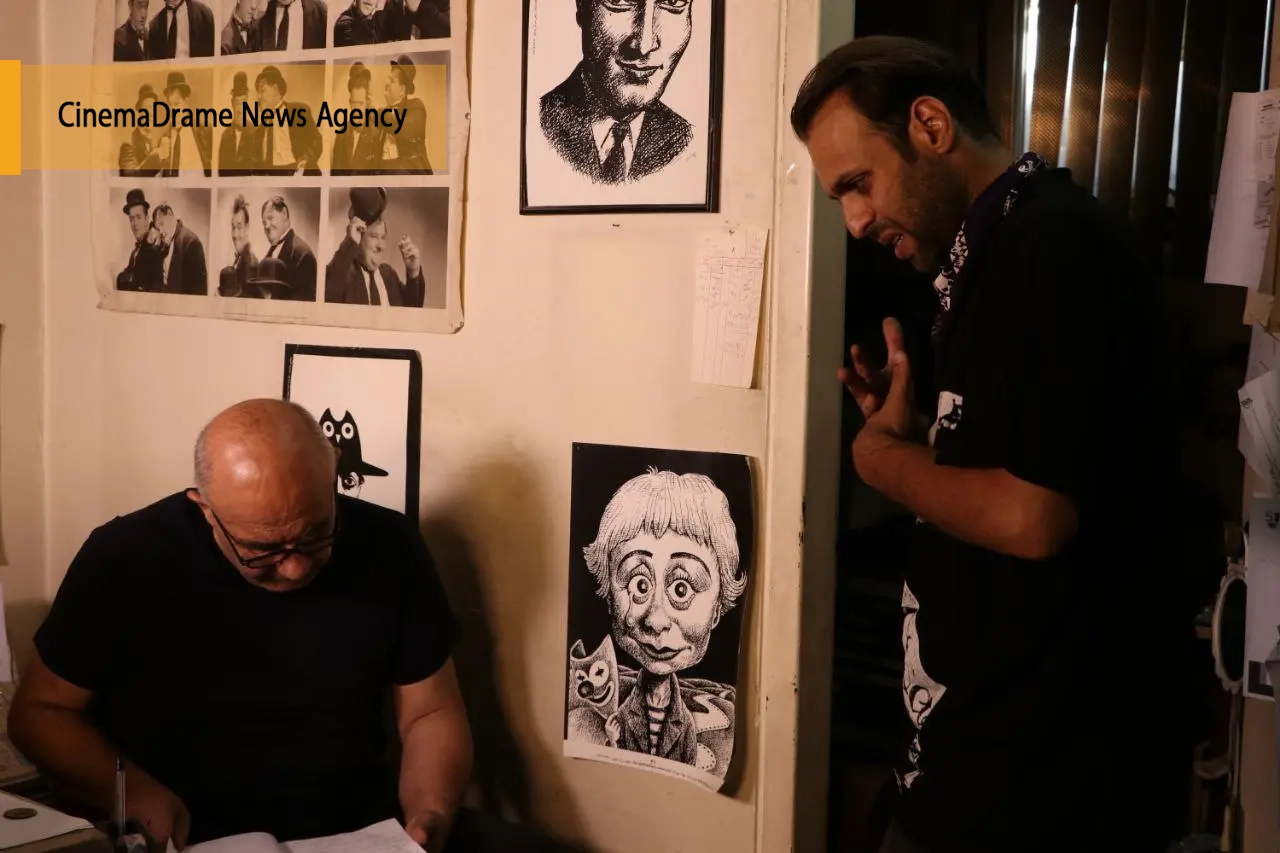
How influential and important do you think the art of caricature can be in society today?
I believe that caricature helps societies, governments, authorities, and humans in general, and it is a very important and influential art. Caricature helps people become more open to criticism and, so to speak, raises society’s tolerance. Caricature helps us be more flexible, and the more flexible we can be, the more flexible we will be in difficult times and in the face of tougher events and comments. Therefore, in my opinion, caricature helps society and the government become more flexible in the face of criticism.
A society struggling with difficult problems might not be able to directly confront issues; caricature can present an image of that problem, making it easier to face. In general, this art enhances the ability to express opinions and the capacity for accepting criticism, and helps us deal with issues more smoothly.
Unfortunately, caricature in Iran and other countries around the world, due to its critical approach, has always been an art that is disliked and oppressed, and it requires great courage for someone to dedicate their entire life to this art.
Despite the emergence of various media currents and the prominence of virtual space, is caricature still an art that is disliked?
Caricature has always had such a status and continues to do so. Whenever an art has tried to address more serious issues, its art has been completely attacked and eliminated, and this situation is not limited to our country. I can say that everywhere in the world, the treatment of caricature art has been much harsher than cinema, poetry, books, and so on.
Can this art still be considered a serious art in our country?
Only two or three people from Mr. Alizadeh’s generation, who are seasoned and experienced caricaturists, remain. Some time ago, one of the most important artists in this field, Mr. Kambiz Derambakhsh, passed away, and now only Mr. Alizadeh, Ahmad Arabani, and Iraj Rezaei from this generation remain. Unfortunately, all of them are now in a state of isolation where their activities have become very limited.
Unfortunately, the House of Caricature does not provide much support for these artists, and only Mr. Hadi Heydari genuinely tries to ensure that these friends are not forgotten. The House of Caricature should pay more attention to this art and its artists. The more famous caricaturists become, the more their works are seen, and consequently, their confrontation with society and politics increases. If they are not supported, they face more criticism and greater isolation, to the point where today we see many artists in this field limiting their scope of activity to their Instagram pages.
Are you satisfied with the screening conditions?
The film “Dauzh Paradiso” is currently being screened in 6 or 7 cinemas, and certainly, if I wanted to screen this documentary myself, I wouldn’t have such an opportunity. The fact that such a platform has been provided for a first-time director is worthy of thanks, and the friends in the Art and Experience group treated me very well; even Mr. Kazemi, the manager of this complex, helped me overcome this anxiety.
The screening of the film is definitely a pleasant and good event, but it is not the end of the road, and I must work harder for “Dauzh Paradiso” to be seen more.
Did the film face censorship?
Very little, to the extent that I myself didn’t expect the cuts to be so minimal. My impression was that the censorship council would remove many parts of the film, but fortunately, their approach to the film was very good. For me, encountering the Ministry of Guidance for the first time, contrary to my expectation, there were very few minor cuts made to my film.
Final point…
Finally, I thank Mr. Mohammad Rashid Aini Mehr, the investor of this work, who worked very hard to make this film and, as a professional producer, provided the space for making this documentary without any interference in the content. I hope every young filmmaker collaborates with such a producer for their first work.
I also thank Mr. Javad Alizadeh for tolerating me and helping this film to be made. During the making of “Dauzh Paradiso,” I might have upset him at times, but he handled it very well and with great patience./ILNA
